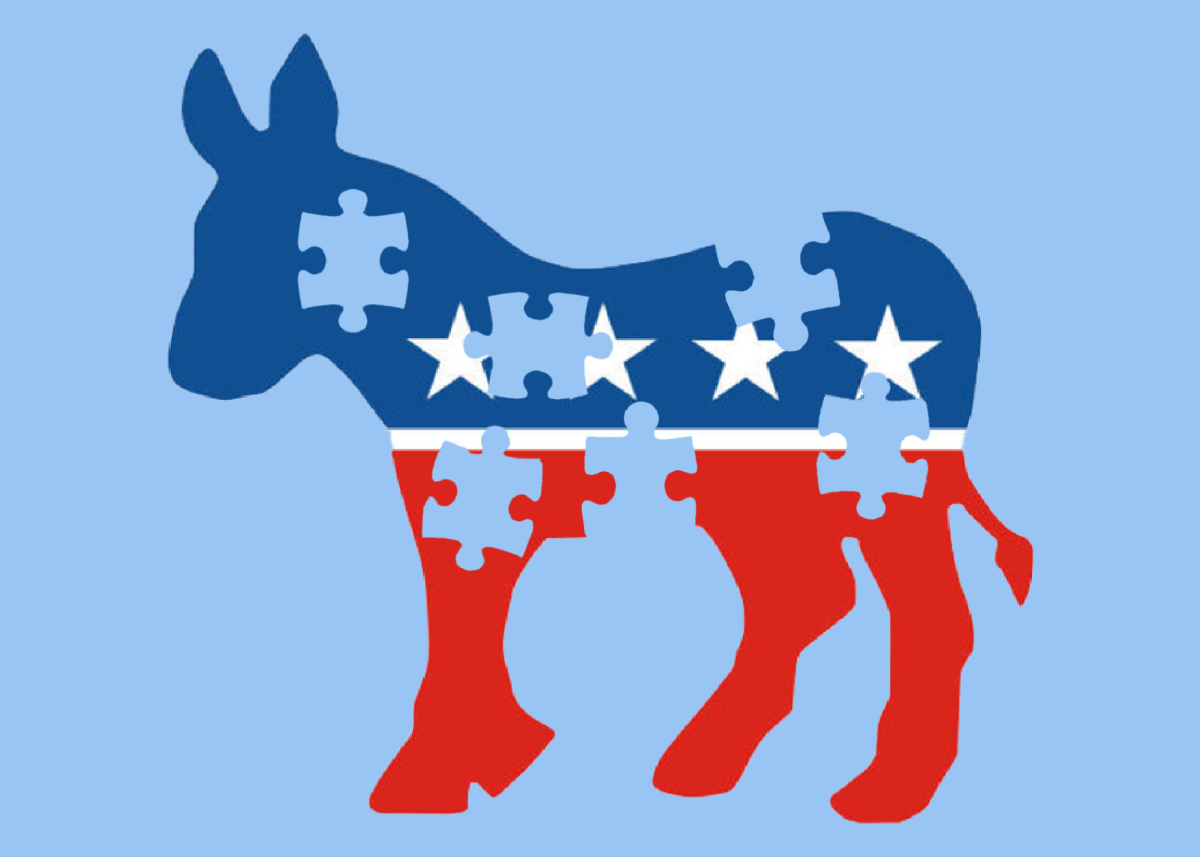If there’s one thing that this election taught us, it’s that the Democratic party doesn’t know how to resonate with the average American voter. On Wednesday morning, Donald Trump was announced the winner of the 2024 presidential election, winning both the popular vote and electoral college by a landslide. His victory was ultimately carried by every single swing state.
This result wasn’t just a shock — it was a wake up call. Yet in the aftermath, voices in the media and online took the easy way out, blaming voters as ignorant, racist and sexist. America and its citizens aren’t any of these things, and the idea of generalizing the actions and beliefs of a few to 300 million people is misguided and harmful.
The reality is that the Democratic Party has become extremely detached from the average American. It’s become a party for wealthy elites, celebrities and people with advanced degrees. It has become a party for people who can afford to spend time, energy and votes worrying about niche and progressive issues like transgender rights, climate change and reproductive freedom (an issue which is often blown out of proportion, as only 6/10 Americans believe abortion should be legal in most/all cases). Despite the importance of these issues in American society, they’re not even close to the top of most people’s priority lists.
The average American is more concerned with paying their bills and finding a good job — they simply cannot afford to care about progressive issues. The party lost sight of the fact that economic anxiety is still the driving and deciding force for many Americans, and while social issues matter, they can’t be the sole focus of a campaign if you want to capture the majority of the electorate. By focusing on social issues, Democrats alienated the voters they needed to win.
Vice President Harris, for all her strengths and good intentions, could have done more to bridge this gap. She has strong economic policies, such as expanding access to healthcare, increasing job opportunities and investing in infrastructure, all of which could have and likely did resonate with working class voters. Yet, she allowed her campaign to appear too far left, distancing herself from the economic concerns of most Americans and instead rallying behind progressive social policies. This failure to align with the priorities of the American voter was one of the Democratic Party’s biggest mistakes in 2024.
Over the last few election cycles, there has been a clear dropoff in the demographics of traditionally Democratic voters. Black men, once a reliable voting bloc for Democrats, have been steadily shifting away from the party. Over the last three elections, their support for Democratic candidates has dwindled, while their support for Trump has grown. Black women, who have also traditionally supported Democrats, also showed a decline in enthusiasm for Harris, voting in fewer numbers than they did for Hillary Clinton in 2016. Latino men, who had supported the Democratic party in the last two elections, flipped for Trump in 2024. The internet and current political rhetoric is full of people claiming that it’s “the racists” who voted for Trump, but in reality, it’s the races who ultimately won him his second term as president.
The Democratic Party’s shift to the far left over the past decade has pushed disgruntled voters toward Trump, who, despite his numerous flaws, is able to connect extremely well with voters on economic issues, promising to stand against the establishment that many feel has abandoned them.
The future of the Democratic party is clear: it must pivot back towards the center. To regain the trust of the working class voters who have lost faith in the party and to be in enough power to create social change, Democrats need to prioritize the issues that matter most to them: economic security, job opportunities, affordable healthcare, inflation and a tax system that doesn’t disproportionately benefit the wealthy. Democrats must also address the concerns of voters who feel left behind by the shift towards progressivism. The reality is that most voters are looking for practical, real solutions to their everyday problems when deciding who to vote for, not an abstract debate on social justice or gender.
In the coming years, the future of the Democratic Party depends on whether it can reconnect with working class voters and shift its focus back to the issues that matter most to the majority of Americans. Until then, the party will continue to lose the working-class vote and the political center will continue to shift further and further away.















Leo McDunn • Dec 16, 2024 at 7:47 am
Respectfully I feel that the larger issue at hand was the fact that Biden didn’t step down in time. If Biden, a president who in my opinion did an excellent job had decided he wasn’t going to run for president again then maybe the Democratic party would have had an actual primary and then from there have a candidate that is better than vice president Harris. Who in my opinion is one of the best public servants this country has ever seen. The fact of the matter is that MAGA is a cult they don’t care about you or your interests all for Felon Sexual abuser bankrupt businessmen Donald J. Trump. This election was not a landslide in any sense of the word. Take a look at the popular vote margin which as of Dec. 16 is at 1.5% while the 2020 election an actual landside was triple that at 4.5%. The electoral college in recent years is and has been an advantage for Republicans.